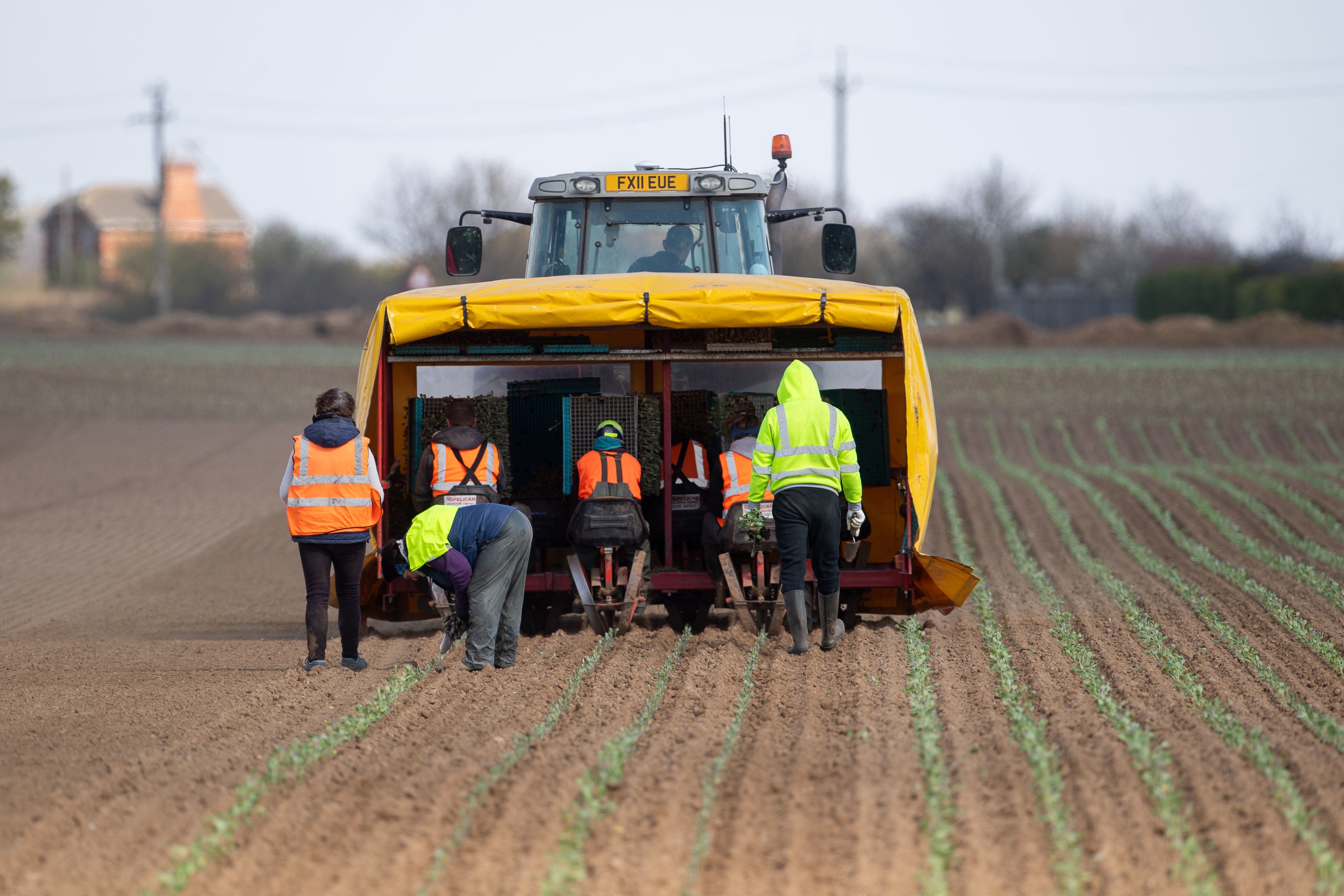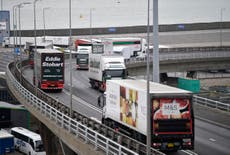Is the UK too reliant on imports of food?
Some Brexiteers are arguing that warnings of threats to our food supply show the UK should produce more food at home. But is it true that the UK imports more food than is sensible? Ben Chu investigates


The haulage crisis and Brexit have served to draw attention in recent days to the extent to which the UK relies on food imports.
As lorries piled up in Kent, industry representatives told MPs that, while there would be sufficient food to prevent shortages for Christmas Day, gaps could start appearing from 27 December if hauliers were unable to leave the UK and return with fresh supplies from the Continent.
Supermarkets and hauliers have also warned in recent months that a no-deal Brexit would mean disruption to food supplies from 31 December. Even the new checks and paperwork that would accompany a successful free trade deal make some disruption likely, according to hauliers.
Some have suggested that this all demonstrates that the UK has become overly reliant on food imports. “Let’s grow and make more at home,” said the Conservative MP and Brexit supporter John Redwood on Twitter this week.
But is it true that the UK imports more food than is sensible? And how feasible is that that we could change this situation by consuming more homegrown produce?
Government statistics show that in 2019 around 55 per cent of the food consumed in the UK was also produced here, while the rest was imported.
The reliance on the European Union is clear, with around a quarter of our food arriving from the rest of the continent.
Africa, Asia and North and South America each provided roughly 4 per cent of the food consumed in the UK.
The traffic is not all one way however. The UK also exports food, as the standoff with the EU over post-Brexit fishing rights in UK waters has underlined.
In 2019 the UK exported £2bn worth of fish. The country also sends £2bn of meat and £2bn of dairy products abroad.
Nevertheless, it is the case that the UK has a deficit – importing more than we import – in all major food categories except for beverages (with that surplus largely due to UK whisky exports).
And we have been growing more reliant on food imports over recent decades.
The UK food production to supply ratio (commonly referred to as the “self sufficiency ratio”) is the farm gate value of raw food production, including for export, divided by the value of raw food for human consumption.
The government describes it as “a broad indicator of the ability of UK agriculture to meet consumer demand”.
The UK self sufficiency ratio peaked at around 80 per cent in the mid-1980s, and has since fallen to around 65 per cent.
Tim Lang, a professor of food policy at City University and author of Feeding Britain, says that the UK is an outlier among developed countries in the extent to which it relies on food imports.
Free marketers in Britain, going back to the Corn Law repeal debates of the 1840s, have traditionally argued that it doesn’t matter whether food is produced domestically – and indeed that government policy designed to promote domestic production risks penalising consumers because they will have to pay more for food that would be cheaper to import.
But Professor Lang and others argue that this kind of free trading fundamentalism is misguided when it comes to food for a host of reasons.
These range from the impact on the environment of long-distance food imports, to issues of national food security (as vividly demonstrated this Christmas).
“A food system engineered on a three-to-five day, ‘just-in-time’ logistics and delivery system has the potential to break down in less than a week,” pointed out City University’s Centre for Food Policy in 2018.
Lang argues that the decline of horticultural production in the UK – fruit and vegetables – has been a “catastrophe”. Britain imports around half of its fresh vegetables and most of its fruit. These mainly come from the EU in winter and are the items that retailers have warned are most at risk from Brexit and Covid-related disruption in the New Year.
“We can grow an awful lot more, and we should grow an awful lot more,” says Lang.
Despite the conversion of some formerly free market Brexiteers like John Redwood to deliberately stepping up domestic food production, critics argue that the government itself is lagging behind.
The Agriculture Act passed this year has little substantive, say some experts, on UK food production and security, being more concerned with biodiversity.
Defra did commission Henry Dimbleby, the founder of the Leon healthy fast food chain, to produce a National Food Strategy in July 2019, but his review won’t deliver its final report until next year.
And Lang identifies a fundamental failure among ministers, so far, to think in a joined-up way about the purpose of the countryside and how it fits with food production and security.
“The Tory view at the view at the moment is that we just want the view,” he says.
“Rewild for beauty, or to let us shoot partridges. It’s not to use the land to feed the people.”
Another political tension when it comes to increasing domestic food production is the labour force. In the absence of a sudden desire among the British population to return to working the land, increasing domestic horticultural production will require an influx of migrant workers.
But the Brexit vote in 2016 was motivated, in considerable part, by a hostility to European workers and the post-Brexit immigration regime is being tightened to keep out low-skilled workers from abroad.
“Why aren’t we growing more? It’s because they don’t want the migrants in and the Brits won’t work on it,” laments Lang.



Join our commenting forum
Join thought-provoking conversations, follow other Independent readers and see their replies
Comments